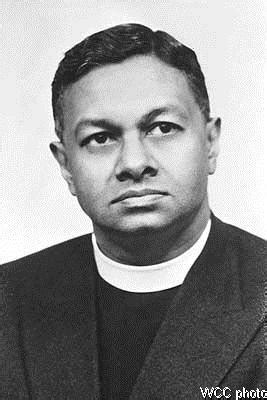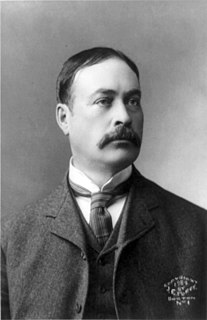A Quote by Julian of Norwich
Related Quotes
There are two gods. The god our teachers teach us about, and the God who teaches us. The god about whom people usually talk, and the God who talks to us. The god we learn to fear, and the God who speaks to us of mercy. The god who is somewhere up on high, and the God who is here in our daily lives. The god who demands punishment, and the God who forgives us our trespasses. The god who threatens us with the torments of Hell, and the God who shows us the true path.
There are two gods. A god who casts us off because of our sins, and a God who calls to us with His love.
The chief difficulty is that God demands of us that we live by faith: faith in God, God's sovereignty over the future, God's sufficiency for the present; while, on the other hand, the various other gods whom we can serve appeal to us in terms of the things which we can see and the forces which we can calculate. The choice between the life of faith and the life of sight is a choice between a God whom only faith can apprehend and gods whom one has only to see to understand.
Worship ought not to be construed in a utilitarian way. Its purpose is not to gain numbers nor for our church to be seen as successful. Rather, the entire reason for our worship is that God deserves it. (Worship) immerses us in the regal splendor of the King of the cosmos…provides opportunities for us to enjoy God’s presence in corporate ways that takes us out of time and into the eternal purposes of God’s kingdom. As a result, we shall be changed—but not because of anything we do. God, on whom we are centered and to whom we submit, will transform us by his Revelation of himself.
Do we not see God at work in our circumstances? Dark times are allowed and come to us through the sovreignty of God. Are we prepared to let God do what He wants with us? Are we prepared to be separated from the outward, evident blessings of God? Until Jesus Christ is truly our Lord, we each have goals of our own which we serve. Our faith is real, but it is not yet permanent. And God is never in a hurry. If we are willing to wait, we will see God pointing out that we have been interested only in his blessings, instead of God Himself.
To make it really clear and simple, let's call this movement across history we see in passages like the ones we just looked at from Exodus and Deuteronomy clicks. What we see is God meeting people at the click they're at, and then drawing them forward.When they're at F, God calls them to G.When we're at L, God calls us to M.And if we're way back there at A, God meets us way back there at A and does what God always does: invites us forward to B.
God’s perspective on us is remarkable, almost unbelievable. He delights in us and loves us as a caring Father. He’s running toward us, ready to embrace and forgive us. He’s for us in all the pain of life and can sustain us in every challenge. as i learn to see from God’s perspective, my perspective on everything else shifts. i realize that my failures don't disqualify me. i’m aware of the security i already have in God’s grace. i trust that nothing will separate me from the love of God in Christ.
The whole story of creation, incarnation, and our incorporation into the fellowship of Christ's body tells us that God desires us, as if we were God, as if we were that unconditional response to God's giving that God's self makes in the life of the Trinity. We are created so that we may be caught up in this, so that we may grow into the wholehearted love of God by learning that God loves us as God loves God.

































